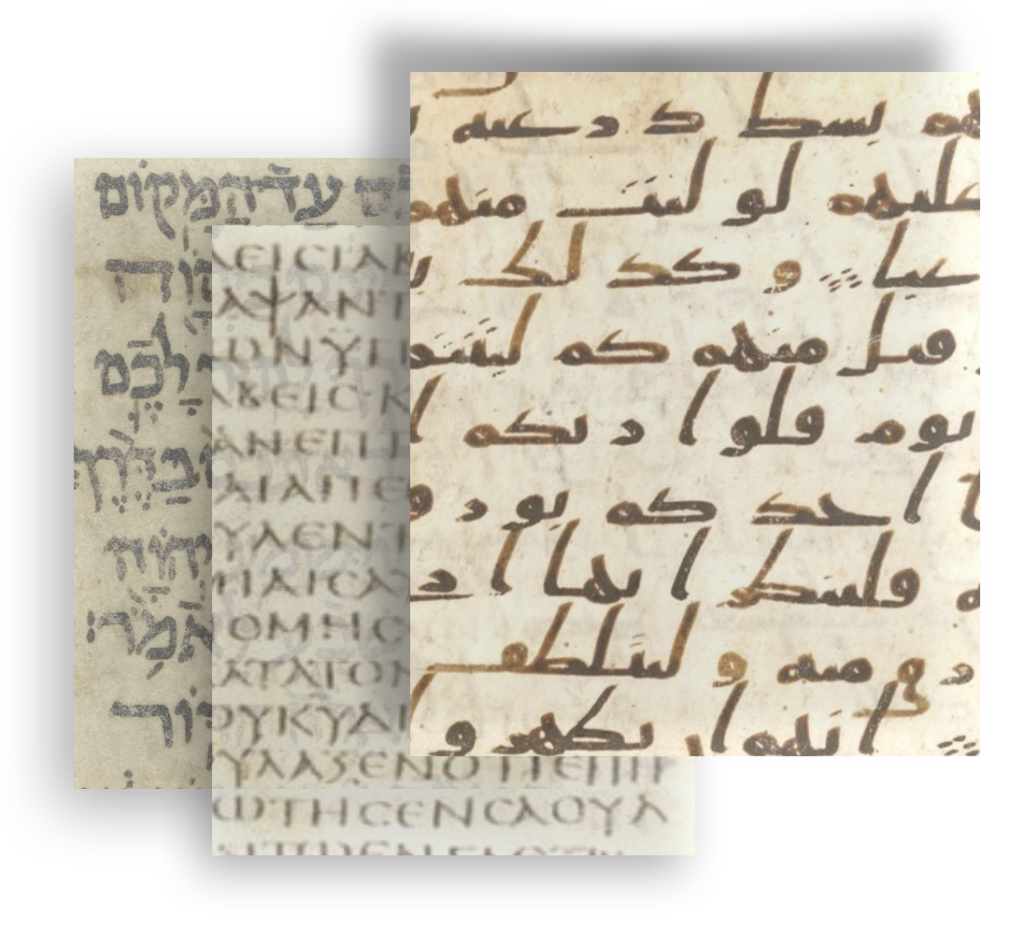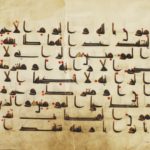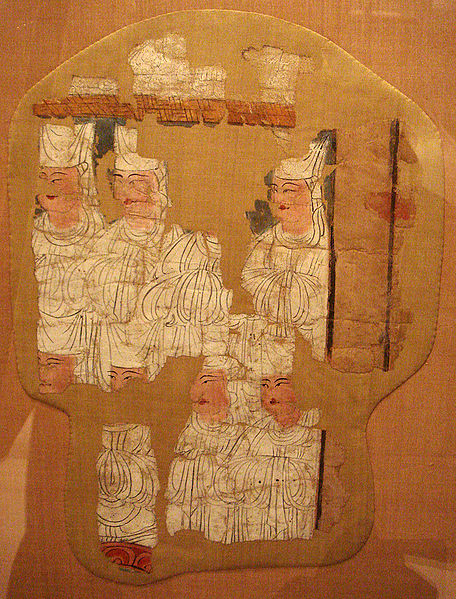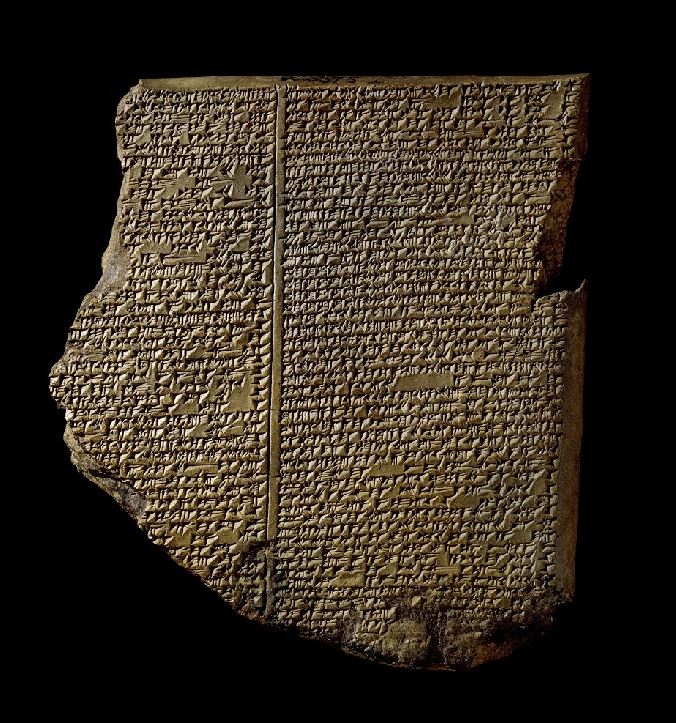
How can the Islam of History attain the goal of standing with its head held high alongside Judaism, Christianity, Hinduism and Buddhism? 3) By studying the personalities featuring in Islam and its history using modern scientific methods, so as to shatter the legend of “the Golden Age” and present it – fantasies aside – as it really was, in all its successes and failures. Did not the Ash‘arī Sunni Ibn Khaldun deplore the order given by ‘Umar for the burning of the Library of Persia? Also by interpreting the great fitna [which caused the Sunna-Shī‘a rift] as a failure of the Shūrā to establish a stable and righteous rule, and not as the “Jewish conspiracy of Ibn al-Saudā’ and ‘Abdallah ibn Sabā,” which collective paranoia has concocted to justify the doctrine of the dhimma [the legally ‘protected’ but subservient religious communities].
THE IDEAL MEANS to achieve this is through the comparative history of religions, which by itself can illustrate religious phenomenology in all faiths – pagan and monotheist alike. It can also be achieved through an analysis of the historical factors which made Islam victorious both in the Arabian Peninsula and beyond.
Following this comes the role of psychology to reveal and analyse the unconscious indicators of sentiments and motives and psychological symptoms in its founding personalities. Similarly, it plays a role in understanding its holy texts and places, its historical personalities, its metaphorical language and internal logic, and its competing denominations and sects, which each claimed for itself the status of “saved”.
Then there is the role played by religious sociology in explaining the various motives that at the time impelled the social actors (and still does in all eras and locations) to use religion as a means of realising their worldly aims, and indulge in religious ravings to justify killing in God’s path, and killing innocents in God’s name, right from the era of the Assassin bands to contemporary suicide movements.
Thus the function of Islam of History is to question the unquestioned legacy of the Islam of Faith, and answer what the Islam of Faith has left unanswered.
With this effort, Islam and its heritage and founders are returned from the grip of mytho-history (history, that is, fashioned by divine imperatives, and with no influence from human beings) to history governed by human imperatives and capacities. On its own the Islam of History, when adopted for religious phenomenology and especially for comparative religion, helps us put a stop to the religious narcissism deriving from primitive ethno-centrism, whereby “there is no salvation outside of Islam, the true faith; Islam is the solution to the problems of the Muslims and of the entire world’ other religions do not exist; Judaism, Christianity were religious laws that have been abrogated by Islamic Sharī‘a” – and all the rest of this narcissistic delirium.
All of which may be cured through the study of the comparative history of religions, in which Islam is presented, like any other religion, as but one of the cultural entities that have borrowed its rituals from cultures that preceded them, such as Judaism, Christianity and Manichaeism – from which last Islam took many of its doctrines such as “the Seal of the Prophets” and no less than four of its five pillars of faith: the Shahāda (Declaration of Faith), Prayer, Zakāh (Alms), and Fasting” (Mu‘jam al-Qur’ān, 250). This puts it in a position to ask questions and express doubts, and thereby take itself out of the shell of its ancient certainties.
Despite being a modern science, the comparative history of religions has roots in classical Islamic thought
The singleness of the Islamic religious event in the context of the religious events that preceded it, through the action of concerted factors such as the development of symbolism and cultural cross-pollination, and the singleness of the collective unconscious, demonstrates the irrelevance of religious narcissism. At the same time it makes a dialogue between faiths possible and blocks the path to a (potentially nuclear) war between world religions.
Despite its being a modern science, the comparative history of religions (which stands at the core of the Islam of History) has roots in classical Islamic thought; Al-Tabari in his Commentary relates that ‘Amr ibn al-‘Ās and ‘Amr ibn Dīnār differed over the reading of verse 86 of the Sūrat al-Kahf:
Till, when he [i.e. Dhū al-Qarnayn] reached the setting-place of the sun, he found it setting in a muddy spring.
‘Amr ibn al-‘Ās read it as ‘muddy spring’ (hami’a), while ‘Amr ibn Dīnār read it as ‘garrison’ (hāmiya). They then referred the question to Ibn ‘Abbās who in turn referred it to Ka‘b al-Ahbār, a Muslim convert from Judaism:
“What do you have in your Torah, Ka‘b? And he answered that the sun was setting at a spring in which there was tha’t, that is, black clay”
whereupon the reading by ‘Amr ibn al-‘Ās was judged the correct one.
Ibn ‘Abbās was only able to find an interpretation for ‘muddy spring’ after a comparison with a Jewish text. If it were not for Ka‘b a suspension of judgment would have been declared as to which of the two readings was the more probable. The cultural historian Arnold Toynbee stated that “Islam is a second Judaism” in view of
the singleness of religious truth shared between the two religions, while Freud assumes, according to his theory of the resurgence of what is suppressed (something which contemporary Egyptology confirms), that following the Christian doctrine of the Trinity Islam constitutes the resurgence of a suppressed Judaic belief – monotheism. And what is my own view? The Qur’ān itself recognises that it is a reproduction of the Jewish holy books:
Lo! This is in the former scrolls. The Books of Abraham and Moses [Qur’ān, LXXXVII, 18,19]
Al-Suyūtī in his work al-Durr al-Manthūr1, writes:
From Qutāda: “God’s books followed on one from the other as you can hear” and from al-Hasan: “from all the books of God”.
The Qur’ān took the legend of the creation of the universe, the creation of Adam and Eve, and the Flood – from the Book of Genesis, which in its turn took from the Epic of Gilgamesh and other Sumerian and Babylonian myths. But given that many of the Islamic élite today appear to be in a state of chronic delirium, we find Dr. ‘Abd al-Sabūr Shāhīn of Cairo University demanding the ‘purification’ of Al-Tabarī’s commentary from ‘Judaicisms’ , and Dr. Abū Hindī of Hasan II University pursuing the same immutable thought in his book Christian Influence on Qur’ānic Commentary:
The core question is … to what extent did the field of exegesis help the reader to deal properly with the Qur’ānic text? … the question is still an issue for its role … in importing other, non-Qur’ānic, meanings derived from the Jews and the Christians … In my paper Israeli Doctrines and Their Influence on the Directions Taken by Qur’ānic Commentary … [I state that] the distorted doctrines in the books of commentaries that are derived from Judaicisms actually go back to Islamic scholarship, primarily to the field of exegesis (p.5), and that anyone studying these conditions [of the signs of the last Hour] soon discovers that there is a major error in the matter, to which Jewish and Christian tales have contributed, along with the Islamic sayings of the Companions and their Followers and others that have been influenced by them, having studied under [Jewish and Christian] People of the Book (p.203).
In al-Hindī’s book it is not just the Commentary of al-Tabarī that has become stuffed with ‘Judaicisms’ but all commentaries – with the exception of just three: one of them being the Commentary by Sayyid Qutb!
On the basis of this absurd logic of cleansing Islam from the fantasy of contamination by Jews and Christians, the next step will be the demand to ‘purify’ the Qur’ān itself from ‘Judaicisms’ and ‘Christianisms’. They might begin with all of the stories of the Prophets, the first victim being the Sūrat Yūsuf with its identical recounting of the symbolic Jewish and Christian accounts!
Therefore, you who are responsible for education, fear God in this your treatment of the youth. Teach them the full three elements: the Islam of History and its ally Enlightenment Islam, and Folk Islam. The Islam of History will teach them to distinguish between matters of faith and scientific truth, between religion and science and between jurisprudence and modern religious phenomenology. It will also teach them openness in an age of the communications revolution and the global knowledge society. It will instruct them in all faiths, dead and living, via the study of comparative religion.

Suggested Reading
Why do this? In order that they may gain a historical understanding of Islam which will protect them from toying with movements that sport with the faith, and which will help them to integrate into the global cultural melting pot. Enlightenment Islam teaches them to have faith in their own internal convictions which each individual builds up from his personal experience. Folk Islam, the seeking of the intercession of the saints, provides them with an effective spiritual/psychological refuge against existential anxiety and the psychological and physical illnesses which medicine still struggles to find a solution for in Muslim countries where psychiatric treatments are rare on the ground and rudimentary. It gives the one who needs it a meaning for his life – for only religion and philosophy provide a meaning to life. Folk Islam is the living devotion practised by one’s forebears and an individual, spiritual experience, be it silent or collective and boisterous. As opposed to the jurisprudential devotion of the Predecessors, it demands neither the application of the Sharī‘a nor jihad, and even less the government of Muslim faqihs.
Similarly, it does not lock off the collective consciousness from modernity. If devotion to the past – the veneration of the Predecessors and their ‘Golden’ age – has taken root deep in the human soul as some sort of yearning for an un-weaned state of infancy when the suckling sees himself as a biological extension of his mother … well then by all means teach the veneration of the Predecessors, but let it be in a peaceable Folk Islam rather than a bellicose, Jihadist Islam.
[1] الدر المنثور في التفسير المأثور, Vol. VI, 570-571.
Read Part 1 of this essay here



